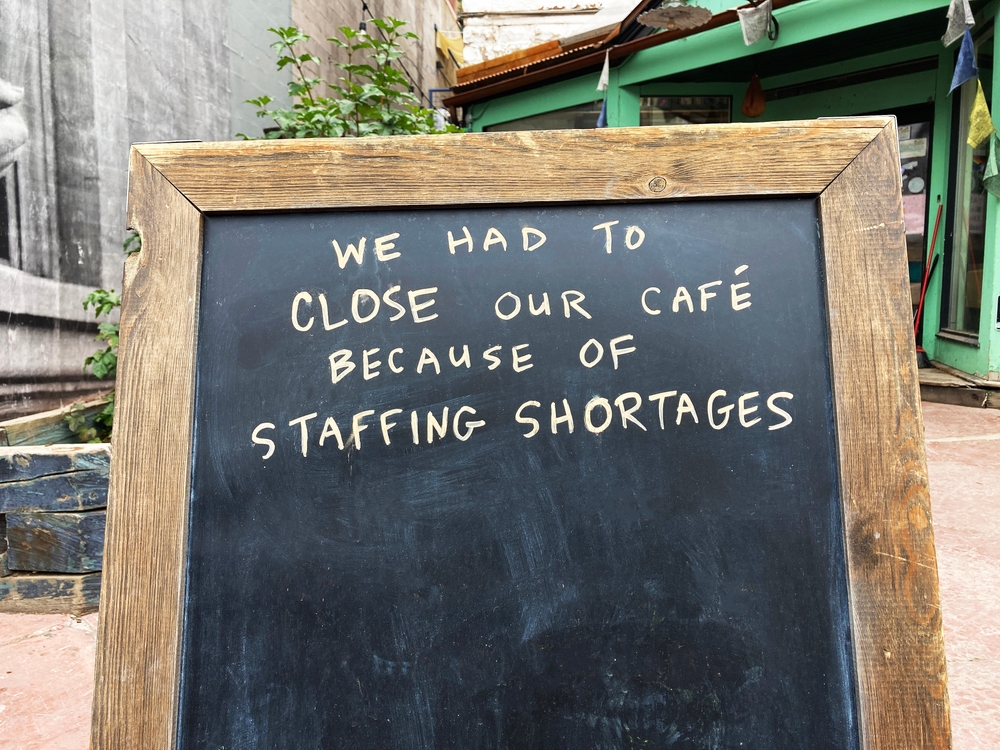Everyone working in the restaurant industry is only too well aware of the restaurant labor crisis precipitated by the COVID 19 pandemic.
COVID closures led to mass lay-offs of staff, but reopening businesses have not found that their talented and experienced staff are necessarily keen to rush back to work.
In fact, statistics from the U.S. Labor Department suggest that an astonishing 7% of hospitality workers quit their jobs in November 2021 alone.
The ‘Great Resignation’ of Restaurant Staff
This may be partly because many restaurant workers have got used to working from home, and have thoroughly enjoyed exploring new opportunities.
And in a tightening labor market, even those who do want to return to full-time employment are able to demand wages, terms, and conditions that can place a significant burden on many outlets.
Fortunately, today’s restaurant technology offers owners and managers a number of ways to tackle this problem.
How Artificial Intelligence (AI) Can Help With Restaurant Recruitment
With experienced and well-qualified staff now able to take their pick of the most attractive positions, speed is of the essence for businesses looking to secure their services.
That’s why emerging AI solutions such as “Olivia” are focused on using automation to streamline the traditionally cumbersome recruitment process.
Olivia is described as an AI-enabled conversation assistant that can save recruitment teams tremendous amounts of time by automating numerous tasks.
Candidates are enabled to submit their applications by text, Facebook Messenger, WhatsApp, or whatever may be their preferred communication platform, using text, voice, or even video.
Fast and Efficient Candidate Screening
From the employers’ point of view, they can quickly and easily screen out those applicants who are unlikely to be suitable by responding to inquiries with a questionnaire.
This may be tailored precisely to the demands of the role in question, and as brief or long, as simple or complex, as required.
Then, once a number of potential candidates have been identified, businesses and candidates can communicate directly and instantly with each other.
Any questions the pre-screened candidates may have can be answered at once, and the system can also automate the scheduling of interviews – whether in person or by using video.
A Readily Available Pool of Pre-Screened Part-Time and Temporary Staff
Not only does this expedited process help ensure that excellent candidates are not lost during an unnecessarily drawn-out process, it also provides considerable cost and time savings for employers.
With a list of pre-screened candidates always readily available, there is no need for a scramble to fill any unexpected vacancies that may threaten the provision of the quality service customers expect.
And on this point, the system can also maintain a list of qualified individuals who may be available to help with single shift, short-term, or temporary gaps in cover.
Getting Started with AI Recruitment Systems
Artificial Intelligence can be a great boon to many aspects of running a restaurant. But with an ever-increasing number of competing systems becoming available, it’s important to choose a system that precisely suits your needs.
And, perhaps most importantly, it’s crucial to train the individuals in your organization with responsibility for recruitment. After all, restaurants are perhaps the ultimate service industry. And there’s no more important factor in your success than the quality of the people you hire.
The great thing about AI systems is that they can learn from experience in a similar way to a human operative; so that with the right inputs you can expect your system to become more accurate in its screening and quicker to find exactly the right candidates for a given role.
Success depends, though, on having existing staff who are thoroughly acquainted with the system and how it works.
The old saying from the early days of computers – “garbage in, garbage out” remains true even in the era of AI. So constant monitoring of the quality of candidates and staff identified by the system, and the tweaking of Key Performance Indicators (KPIs) and screening parameters as required, is essential if the maximum benefit is to be derived from the system.
Rest assured, though, that this monitoring should be nowhere near as time-consuming as more traditional methods of hiring.
Tackling the Hospitality Labor Crisis
In what was already a highly competitive and low-margin industry, the shortage of labor and the increasing costs that have resulted from the recent pandemic represent nothing less than a crisis for many outlets.
In this context, and while still an infant technology, AI recruitment systems can be an invaluable tool for assisting with the rapid hiring of the talented staff on which your business depends.

